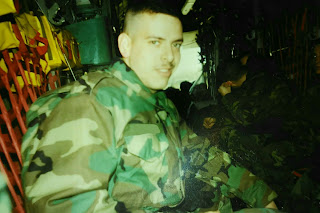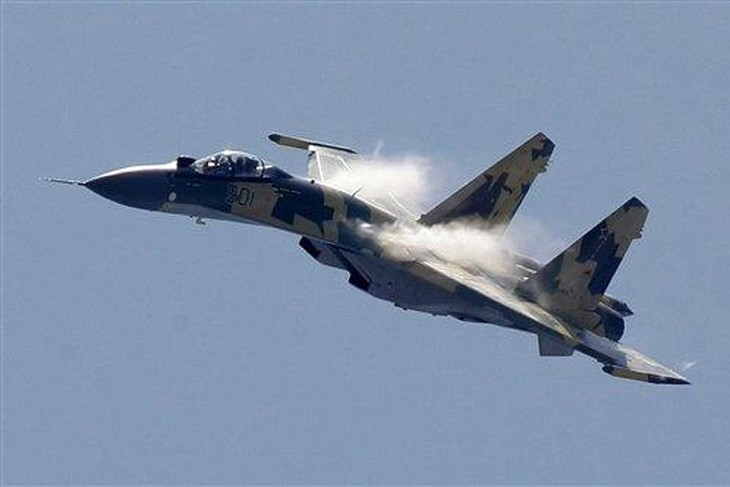Air Force Forms 'LGBTQ' and 'Indigenous Nations Equality' Focus Groups, and Top-Down Changes Are Eyed
Do American Indians who join the Air Force have unique challenges?
According to the military, yes.
The same goes for lesbian, gay, bisexual, transgender, and queer/questioning recruits.
Therefore, last month, the United States Air Force put together two focus groups to address barriers impeding airmen and Space Force Guardians.
An April 26th announcement breathed official life into each:
- Lesbian, Gay, Bisexual, Transgender and Queer/Questioning Initiative Team, otherwise known as LIT
- Indigenous Nations Equality Team, or INET
From the Secretary of the Air Force Public Affairs:
The establishment of these two teams builds on the successes of the Department of the Air Force’s other teams and allows the Department of the Air Force to identify and address the issues impacting diversity and inclusion for Airmen and Guardians.
The LGBTQ Initiative Team focuses on the LGBTQ community and identifies and works to resolve the issues that disproportionately impede the success of LGBTQ Airmen and Guardians.
The creation of this team comes 10 years after the repeal of Don’t Ask Don’t Tell, the legislation that prohibited LGB service members from serving openly. For many of the senior-ranking military members, some of whom served under DADT for nearly two decades, the creation of LIT is a watershed event.
And in case you were bummed that “LIT” was so much cooler than “INET”:
The INET, a play on words for the term Innit which is a slang term among tribes meaning, “yes, I agree,” will review and analyze guidelines, programs, data and other information for barriers to employment, advancement and retention of American Indian/Native American and Alaska Native employees and military members.
Gwendolyn DeFillippi — assistant deputy chief of staff for manpower, personnel, and services — praised the creation:
“Once again, our Airmen and Guardians are leading the way. With the addition of these two groups, we will have a better understanding of barriers to service which allows us to enhance our diversity and inclusion. Our Airmen and Guardians are the pulse of our Department’s culture and the diverse backgrounds. Inputs from these volunteer groups is vital.”
As reported by Military.com, in a roundtable interview Wednesday, Maj. Gen. Leah Lauderback — head of LIT — expressed the need for top-down change.
“If we want this to succeed,” she said, “it requires that leadership…first and foremost be part of the process.”
Leah’s also the director of intelligence, surveillance, and reconnaissance for the U.S. Space Force.
She’s concerned for young servicepeople who are doubting their gender identity.
“We need to be able to get support through our providers, through our medical professionals within the service, in order to work that.”
Where do the LGBTQ corrections start?
The answer may involve HIV:
A first step, she said, could be to encourage medical staff members to commend airmen for seeking care to protect themselves against HIV exposure. Airmen must fill out request forms to use pre-exposure prophylaxis treatment medication — something that was once prohibited for pilots and aircrew. That policy was amended in 2018.
One simple improvement would be to change the language on the forms, which categorizes these airmen as “high risk,” Lauderback said. “This airman is looking for help, he’s doing the right thing, he’s being responsible, and so we want to make him feel good about that, as opposed to making him feel that he’s doing something wrong.”
Leah would also like family programs addressed with gay and lesbian family structures in mind.
As for INET, Cherokee/Creek leader Terrence Adams said his goal is to “begin to champion, to make those small voices [into] large voices as we begin our journey.”
He’s working with the Society of American Indian Government Employees and the American Indian Science and Engineering Society to identify and remove what Military.com calls “challenges indigenous airmen see in the ranks.”
The military is definitely in a transitional phase.
Cases in point:
Military Generals Call for Increased Diversity, Encourage More Women in Combat
The Pentagon Forms a Diversity and Inclusion Office, Installs a Chief Who Likened Trump to Hitler (he was later reassigned)
Military in Motion: The U.S. Navy Adds Antiracist Books to Its Official Reading List
History-Making Defense Secretary Hails More History: For Transgenderism in the Military
Back to focus groups, where diversity and inclusion’s concerned, America’s Armed Forces are trying extremely hard to get things right.
Hence, the creation of all the following groups:
- Black/African American Employment Strategy Team
- Disability Action Team
- Hispanic Empowerment and Action Team
- Indigenous Nations Equality Team
- LGBTQ Initiative Team
- Pacific Islander/Asian American Community Team
- Women’s Initiatives Team
There was a time when the only groups, generally, were the branches of fighting.
I guess they’ve determined more groups is better.
Let’s hope they’re right.
Original Here

|
OR
Click HERE to receive a Daily Newsletter delivered to your inbox each morning!
⭐⭐⭐⭐⭐
-Tex

